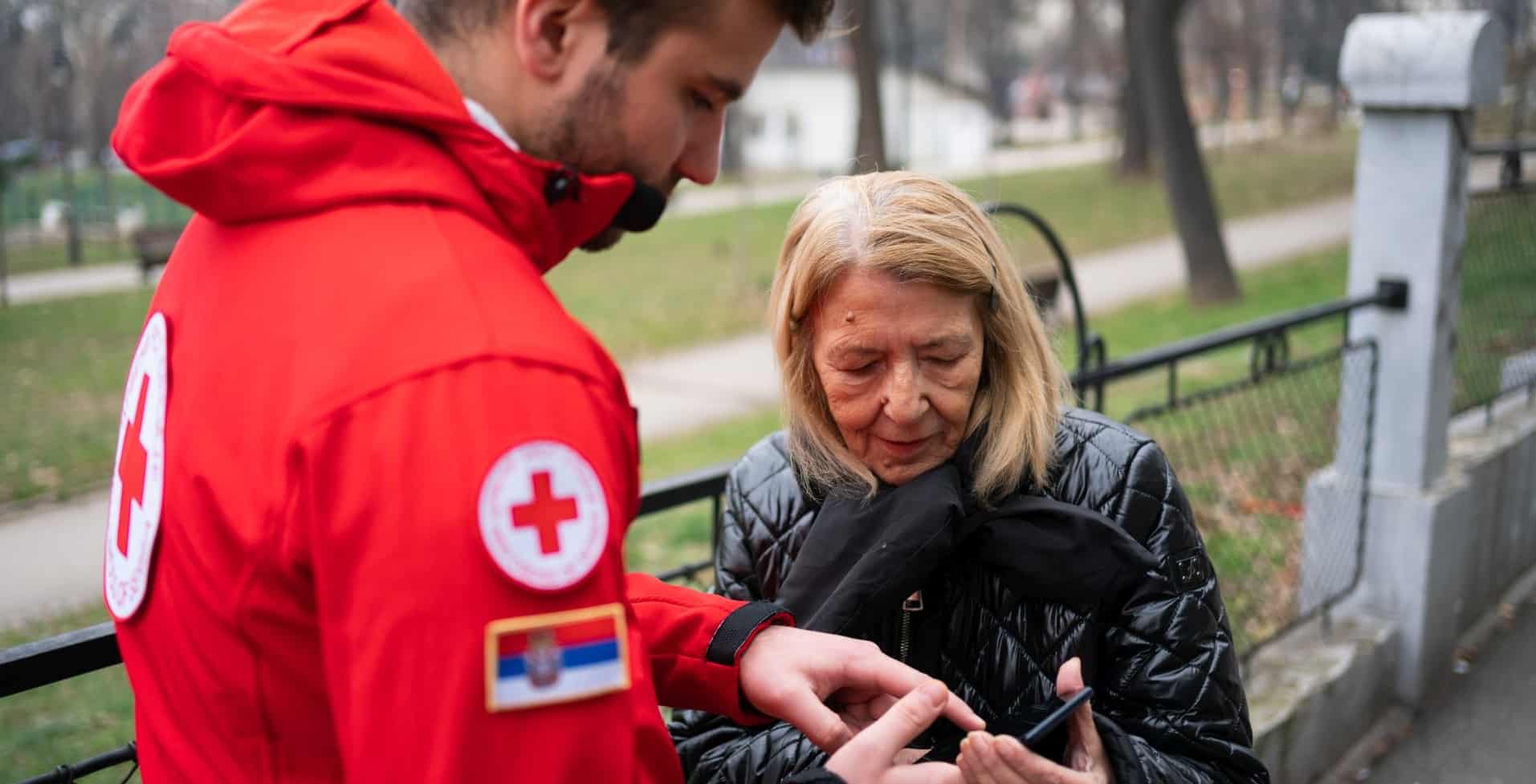
While the number of people with dementia is rapidly growing worldwide, they remain invisible in public health planning. Faced with this observation, our member the Red Cross of Serbia engaged into a new initiative.
According to the World Health Organization, 55 million people suffer from dementia worldwide. This number will double by 2030. The cost of caring for people with dementia is estimated to $604 billion.

- provide integrated services that preserve people’s functional capacities,
- create links between health care and social care services,
- support informal caregivers.
People with dementia have a right to information, support, and participation
The activities of the centres include visits to older persons’ households, education of older persons, self-help groups, creative crocheting workshops, painting and handicrafts for older persons, library, and computer space where older persons can learn and develop personal computer skills.
Cognitive exercises for persons with dementia will be organised to stimulate existing mental capacities and slow down the development of the disease. The volunteers helping with the cognitive exercises are also an important social contact for people living with dementia that often end up marginalised.
Informal caregivers deserve support
Excerpts from public policy published by the European Research Centre in Vienna estimate that approximately 100 million people in the European Union provide informal care and that 80% of care provided comes from the family. During the COVID-19 pandemic, informal caregivers found themselves in an even more demanding role, becoming one of the pillars of the systems of health care and social care.
The project foresees educational activities targeting informal caregivers, respite service, and preventive home visits are also included. The Red Cross of Serbia has also created training for informal caregivers to make their work easier, reduce stress and the risk of burnout syndrome.
The project is funded by the European Union and the Austrian Development Agency and is being implemented in Austria, Serbia and Montenegro.
To receive more information about the project and its tools, please contact: Nataša Todorović, natasa@redcross.org.rs
See also:






